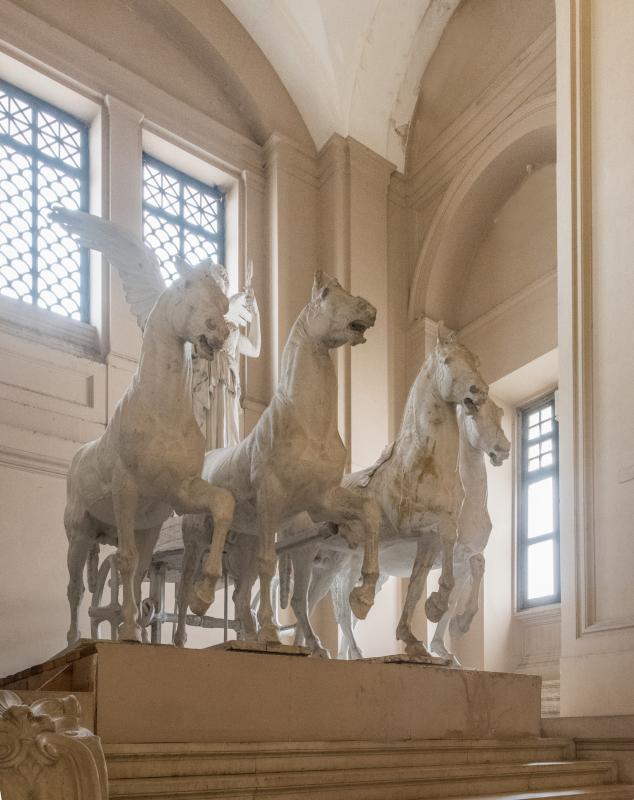Two plaster models of the quadrigae were put in place to evaluate the overall effect
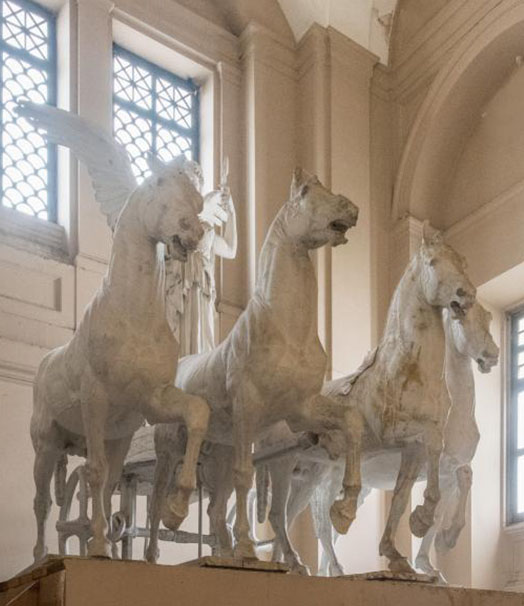
Planning and creating the quadrigae was an extremely complex task. In June 1911, for the inauguration of the monument, they were not yet in place. Indeed, as time passed, many begun to wonder if and how they would harmonise with the rest of the monument. To dispel these doubts, a ‘dress rehearsal’ was carried out before proceeding with the bronze casting process. Thus, in December 1911, life-sized plaster models were placed on top of the propylaea.
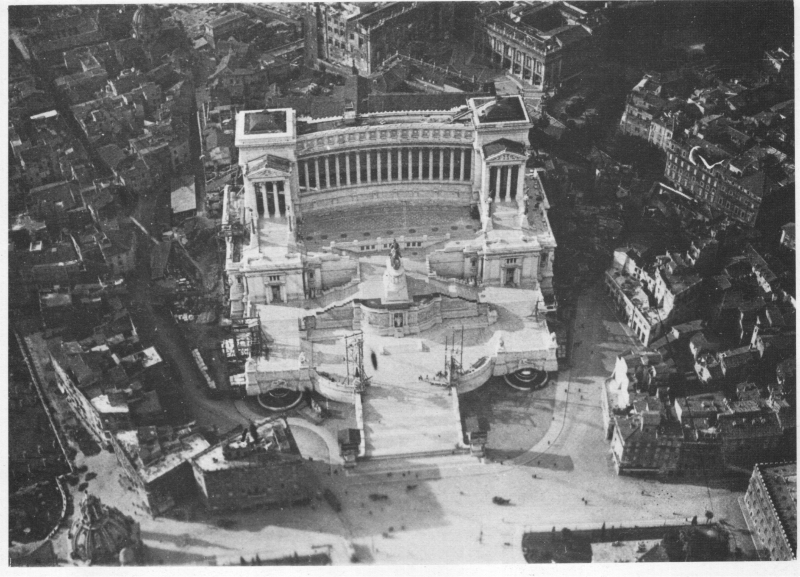
Aerial view of the Vittoriano before its inauguration in 1911
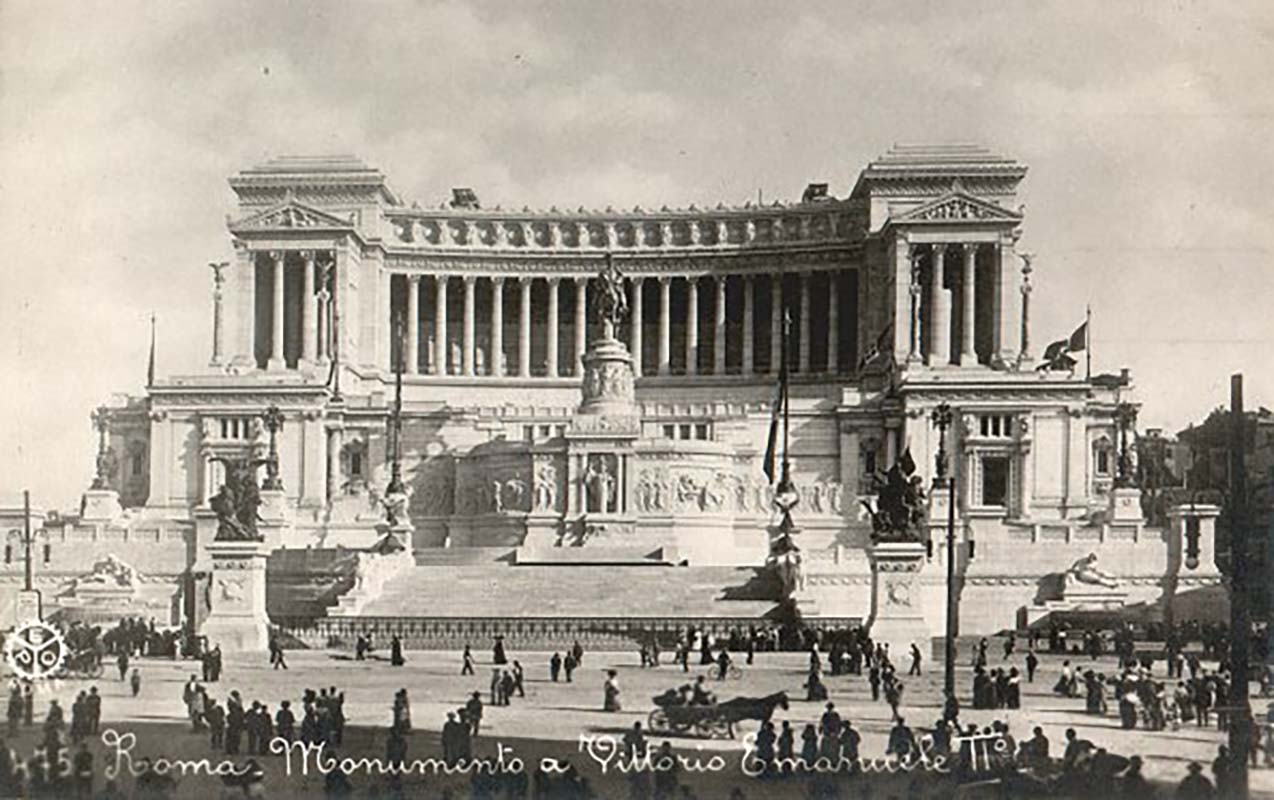
The Vittoriano in a photograph from the early 1920s: the two propylaea were still without the Quadrigae
This trial proved that some of the doubts and uncertainties were well founded. The quadrigae were not at all well integrated with the architecture. The first issue was ‘technical’: the two sculptural groups were too large, therefore, they extended beyond the front roofline of the building. The second problem concerned the mode of representation: the movement of the horses, in particular, was too haphazard.
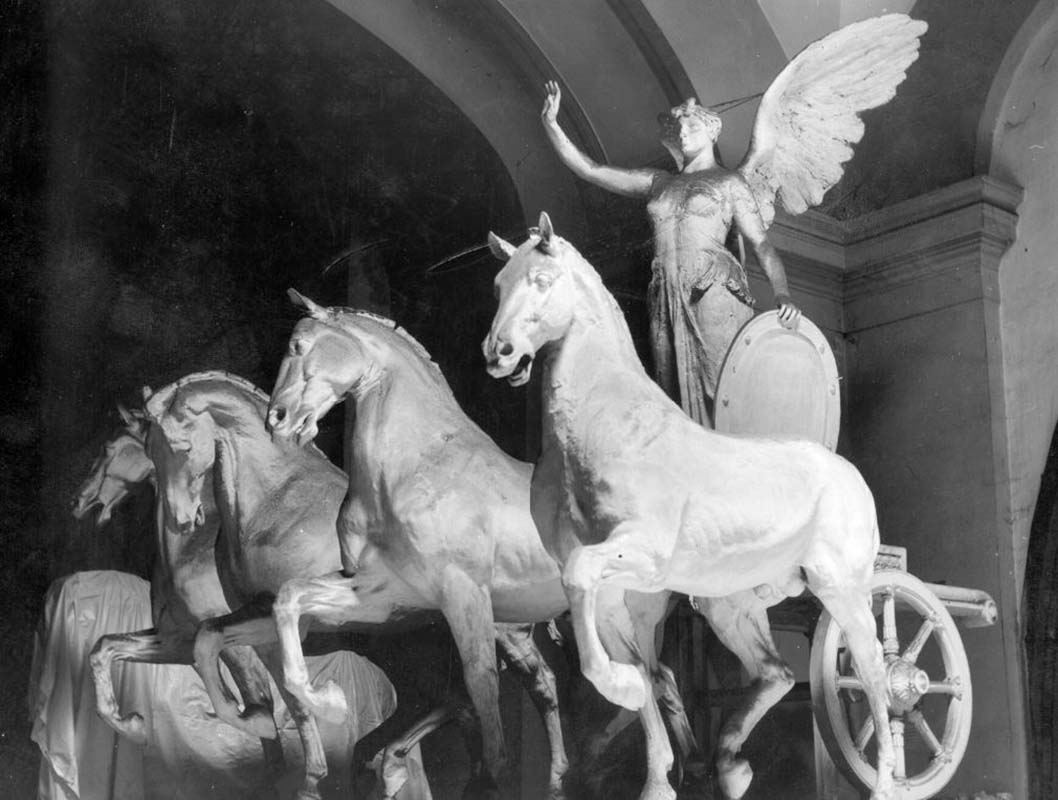
Plaster model of the Quadriga of Unity by Fontana, placed on the eastern propylaeum for a ‘general test’ in 1911
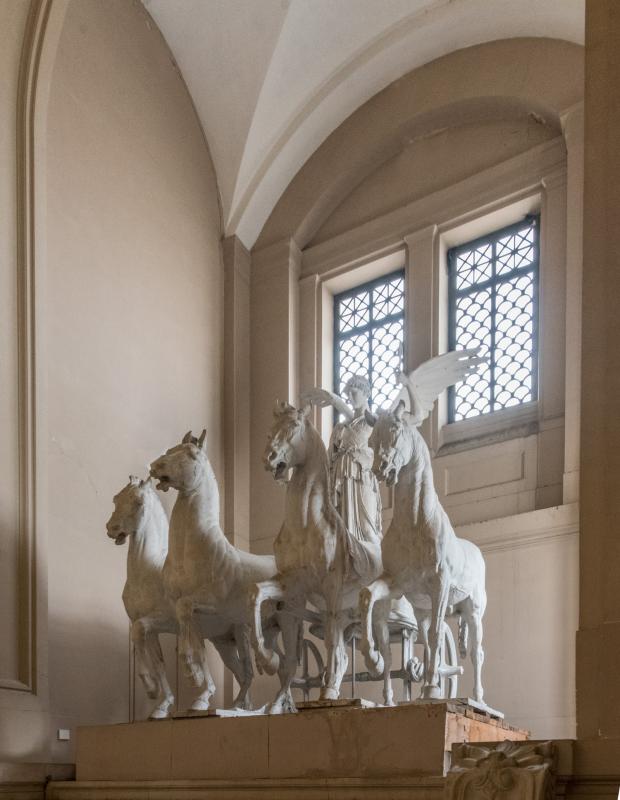
Plaster model of the Quadriga of Liberty by Bartolini, placed on the propylaeum in 1911
